*Ad Free Videos for as little as $1/Month Subscription!!*
The History and Impact of Black-Owned Businesses in America: How Early Black Entrepreneurs Shaped America’s Business Landscape
By Darius Spearman (africanelements)
About the author: Darius Spearman is a professor of Black Studies at San Diego College, where he has been pursuing his love of teaching since 2007. He is the author of several books, including Between The Color Lines: A History of African Americans on the California Frontier Through 1890. You can visit Darius online at africanelements.org.
Introduction
The history of Black entrepreneurship in America is a testament to the resilience and determination of the Black community in the face of adversity. From the earliest days of the nation, African Americans have played a significant role in shaping the business landscape. This article explores the history and impact of Black-owned businesses in America, focusing on key individuals, challenges, and successes across the 19th and 20th centuries.
The Early Years: Black Entrepreneurs in the Antebellum Era
Free black entrepreneurs faced discrimination and often had to contend with laws restricting their opportunities. Yet, they still succeeded in various fields, such as shipping, lumber, and real estate. Enslaved Blacks who were entrepreneurs were allowed to hire their own time and participate in the market with their master’s permission, sometimes achieving significant wealth. Whether free or enslaved, black entrepreneurship was able to thrive in antebellum America due to the profit motive and the nature of the free market system
Despite the legal disabilities that restricted their opportunities, some free black entrepreneurs managed to develop business enterprises that provided services for white patrons or specialized in various retail and service occupations. (Walker 366) The most successful black entrepreneurs were found in New Orleans, San Francisco, and cities in the North (Walker 364-365).
Black Tradesmen
In the antebellum era, black tradesmen played a crucial role in developing black-owned businesses in America. Skilled artisans, such as blacksmiths, carpenters, and shoemakers, provided valuable services and laid the foundation for future generations of black entrepreneurs. Despite the limitations imposed by slavery and racial discrimination, many black tradesmen established successful businesses, often serving both black and white clientele.
This legacy of perseverance and ingenuity is evident in the story of Henry Boyd, a formerly enslaved person who became a prosperous furniture maker in Ohio during the 19th century. Boyd’s innovative designs and skilled craftsmanship enabled him to compete with white-owned businesses, demonstrating the potential of Black entrepreneurship (Walker 370).
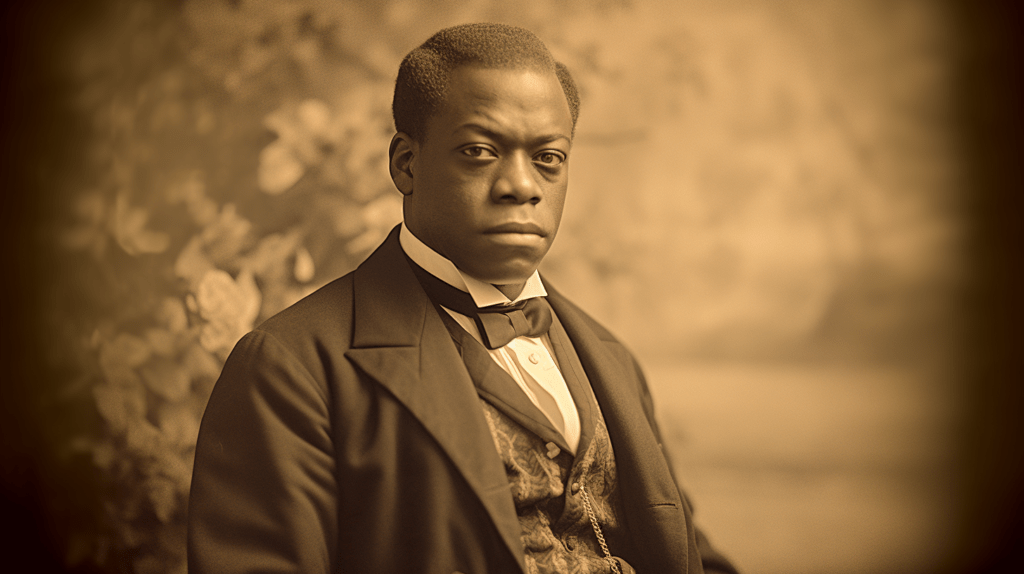
Continuing this proud tradition of Black entrepreneurship, James Forten, a prominent Black entrepreneur in the 19th century, amassed considerable wealth through his sail-making business in Philadelphia. Forten’s success allowed him to contribute generously to the abolitionist movement, making him a key figure in the fight against slavery.
In 1850, James Forten, a black sailmaker, was worth an estimated $100,000, making him one of the wealthiest black entrepreneurs in antebellum America…
It was said of James Forten that “his own coffers were so generously opened that only the wealthy New York merchants, Arthur and Lewis Tappan, contributed more to abolitionism than he did.” (Walker 374-77)
Black Entrepreneurs in the Service Sector
The service sector also saw the emergence of black entrepreneurs during the antebellum period. Barbers and caterers were among the most successful black-owned businesses in this era. Black barbershops, in particular, became important cultural and social institutions within the black community, serving as gathering places for discussion and information exchange.
Catering businesses, on the other hand, allowed black entrepreneurs to leverage their culinary skills and artistry to create a niche for themselves in the competitive world of event planning and hospitality. Many black caterers gained reputations for excellence, and their services were sought after by wealthy white clients.
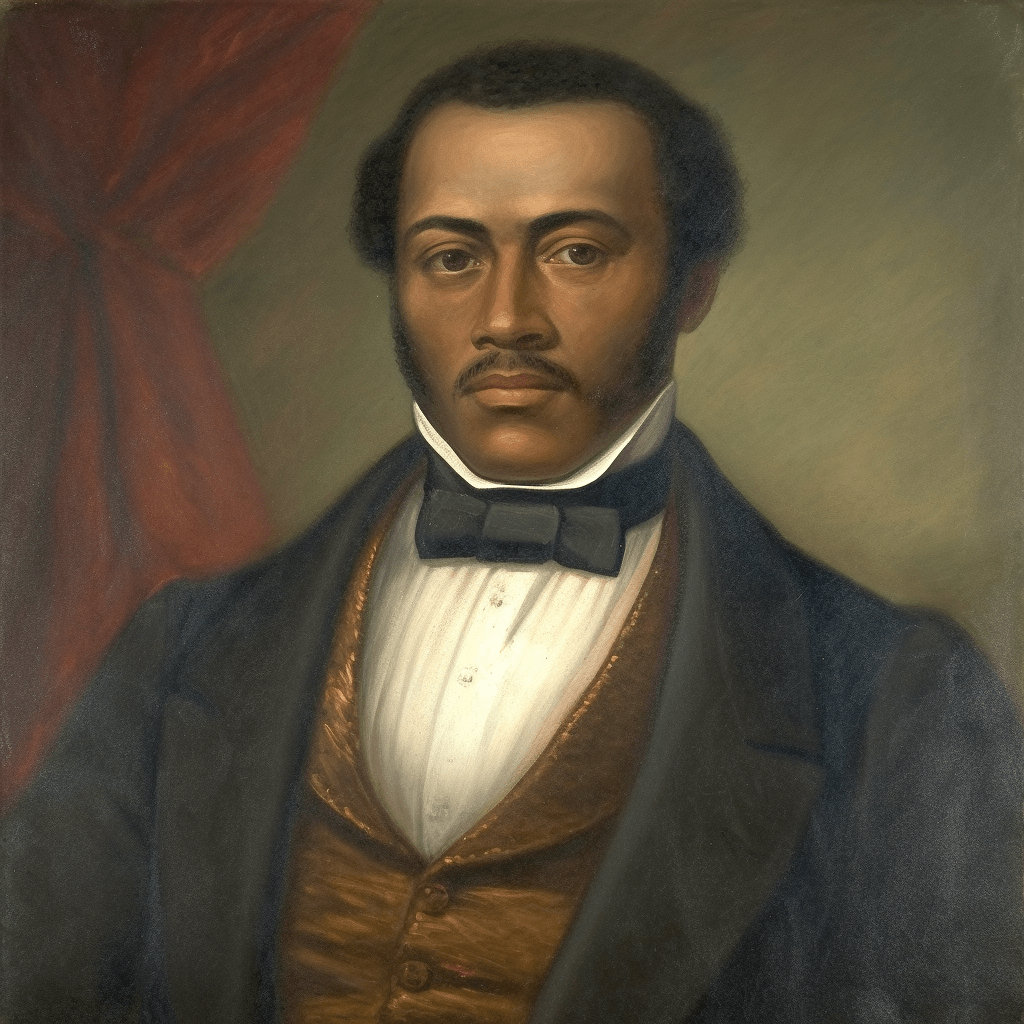
During the antebellum era, several notable black entrepreneurs succeeded despite the many barriers they faced. Among them is William Leidesdorff. Leidesdorff, a successful merchant and landowner in California during the mid-1800s, is often regarded as the first African American millionaire (Walker 368). His business ventures included shipping, real estate, and hospitality, which laid the foundation for future Black entrepreneurs to thrive.
On the east coast, Thomas Downing owned a successful oyster house in New York City, catering to the city’s elite (Walker 369). Downing’s business acumen and commitment to his community made him a prominent figure among Black entrepreneurs in the antebellum North.
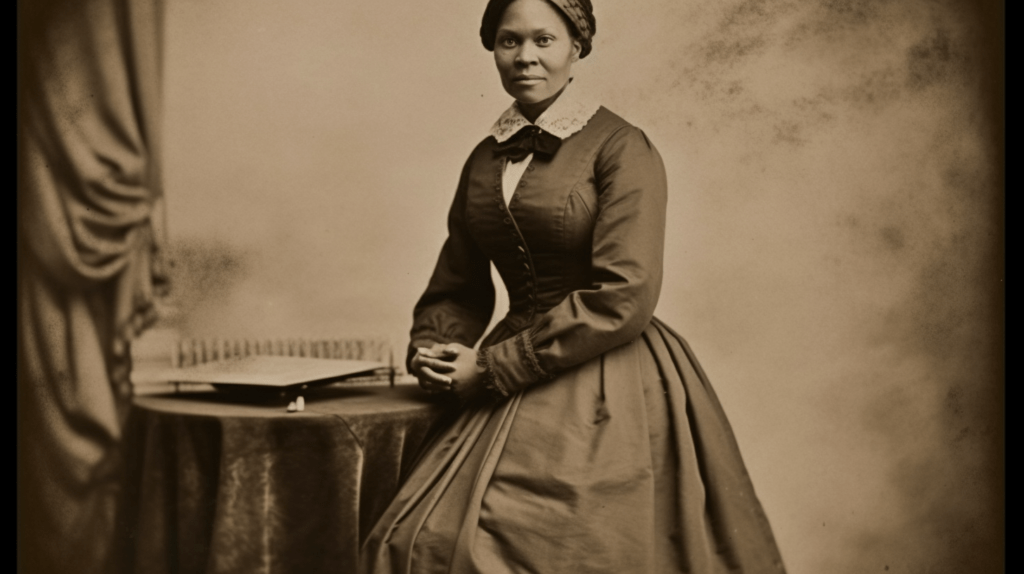
Among the Black women entrepreneurs, Elizabeth Keckley, a formerly enslaved person, established a successful dressmaking business in Washington, D.C., during the 1860s, serving clients such as Mary Todd Lincoln (Walker 372). Keckley’s entrepreneurial journey highlights the opportunities available to skilled and determined African Americans in the antebellum period.
As these individual success stories mounted, the total number of black-owned businesses in the North increased from 12 in 1820 to more than 50 in 1860 (Walker 370). These early examples of black entrepreneurship in the antebellum era demonstrate the resilience and determination of African Americans to succeed in the face of adversity. By establishing businesses in skilled trades and the service sector, black entrepreneurs laid the groundwork for the growth and diversification of black-owned enterprises in the years to come.
The 20th Century and the Growth of Black Business
Black Entrepreneurship in the Post-Bellum Years Era
Despite their successes, early Black entrepreneurs faced significant challenges, including limited access to capital and systemic racism. The resilience of these individuals in overcoming these obstacles demonstrates their commitment to economic independence and prosperity within the Black community. Transitioning from the early Black entrepreneurs’ struggles, the Jim Crow era brought about a unique opportunity for African Americans.
During the Jim Crow era, racial segregation and discrimination forced African Americans to rely on Black-owned businesses for goods and services. As a result, a vibrant network of Black businesses emerged, catering to the specific needs of the Black community. This growing network of businesses paved the way for establishing organizations like the National Negro Business League (NNBL) to support and uplift the Black entrepreneurial community.
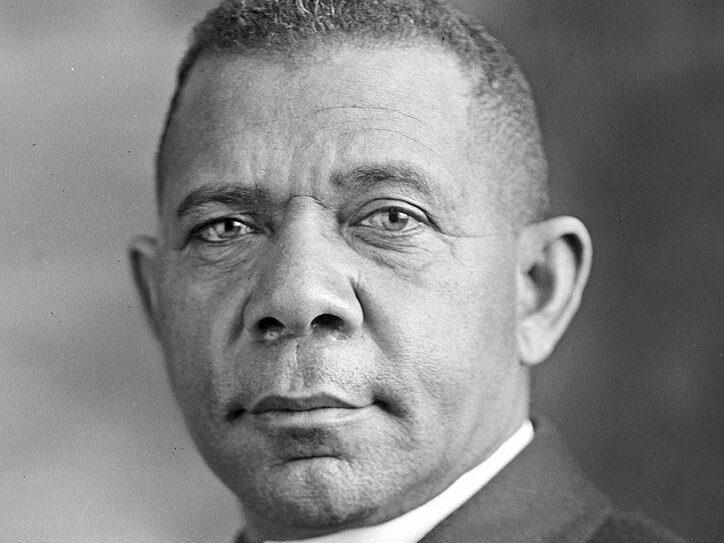
Founded by Booker T. Washington in 1900, the National Negro Business League (NNBL) aimed to promote and support Black-owned businesses. The NNBL provided resources, networking opportunities, and advocacy for African American entrepreneurs, contributing to the growth and development of Black businesses in the early 20th century.
As a result, throughout the 20th century, Black-owned small businesses continued to thrive, often serving as the backbone of the African American community. These businesses included grocery stores, restaurants, barbershops, and beauty salons, which provided essential services and created employment opportunities for Black Americans.
The beauty industry has been a significant growth area for Black-owned businesses, with many Black-owned beauty salons and barber shops serving as pillars of the Black community. By catering to the unique needs of African American customers, these businesses have carved out a niche in the market and contributed to the overall success of Black entrepreneurship.
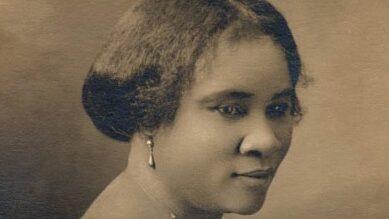
Black women have played a crucial role in the growth of Black-owned businesses. Women like Madam C.J. Walker, who built a beauty empire in the early 20th century, not only created wealth for themselves but also paved the way for future generations of Black women entrepreneurs.
“Black Wall Street” and Economic Black Nationalism
In the early 20th century, one of the most prominent examples of black economic prosperity was the Greenwood District in Tulsa, Oklahoma, known as “Black Wall Street.” This thriving business district was home to over 300 black-owned businesses, including banks, hotels, and retail establishments. It was a testament to the entrepreneurial spirit and resilience of the black community in the face of racial segregation and discrimination.
The Greenwood District in Tulsa, Oklahoma, known as “Black Wall Street,” was a remarkable example of black economic prosperity in the early 20th century. Despite facing racial segregation and discrimination, the black community showcased its entrepreneurial spirit and resilience by building over 300 businesses, including banks, hotels, and retail establishments. The district became a hub for black entrepreneurship and a symbol of hope for the community.
The success of Black Wall Street was not just about economics; it was also a social and cultural achievement. The thriving business district created a sense of community and pride among black people. It was a safe haven where they could shop, bank, and socialize without the fear of discrimination. The black community demonstrated that they could achieve greatness and contribute to the nation’s economy and social fabric.

However, this achievement was short-lived. In 1921, a white mob destroyed the district in a violent race riot. The destruction of Black Wall Street was not just a loss of businesses and property, but it was also a loss of community and hope. It was a reminder of the harsh reality of racism and the fragility of black success in a white-dominated society. It was for perhaps this reason many sought to disentangle the Black community completely from the web of U.S. economic dependency.
Marcus Garvey, a Jamaican-born political leader and entrepreneur, advocated for Black economic independence in the early 20th century. Garvey’s philosophy of self-reliance and Black empowerment continues to inspire generations of African American entrepreneurs.
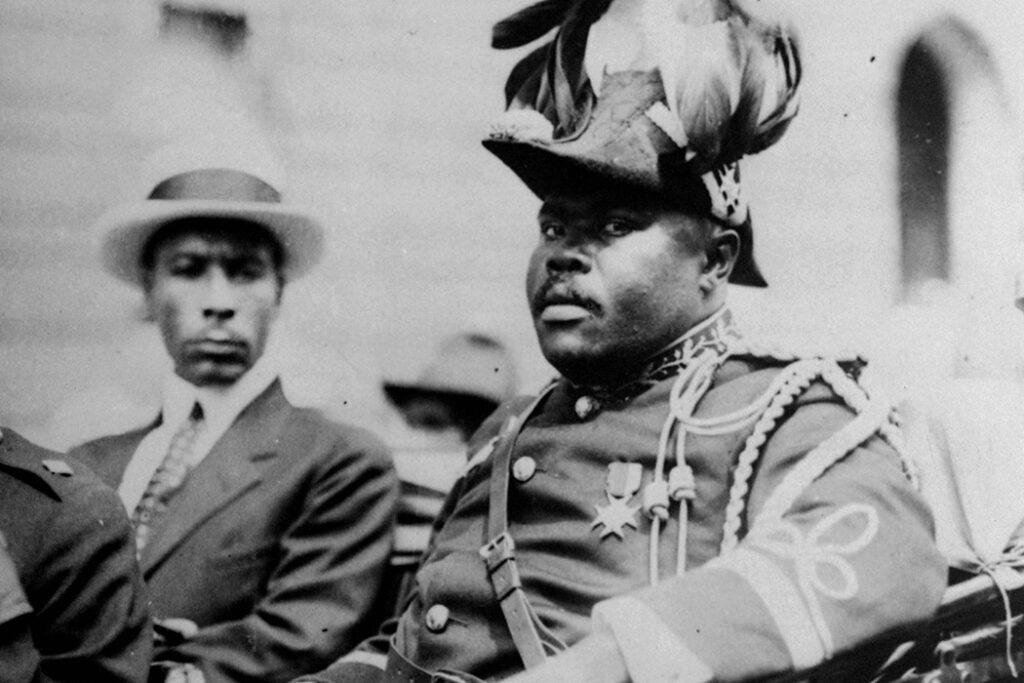
Marcus Garvey’s legacy continues to inspire many African American entrepreneurs to this day. As a political leader and entrepreneur, Garvey recognized the importance of economic independence and self-reliance for Black communities. He believed that Black people should not depend on others for their economic prosperity but instead create their own opportunities through entrepreneurship and business ownership.
Garvey’s message of self-reliance and Black empowerment was radical for its time, but it continues to resonate with many African Americans who strive for economic independence and financial success. Many Black entrepreneurs have taken Garvey’s philosophy to heart, recognizing the power of economic empowerment and the importance of building Black-owned businesses and supporting Black communities.
Garvey’s legacy also highlights the importance of representation in entrepreneurship. Seeing successful Black entrepreneurs can inspire future generations to pursue their entrepreneurial dreams, knowing that success is possible. Garvey’s message of self-reliance and economic independence has inspired many Black entrepreneurs to take control of their own destinies and create their own paths to success.
The Ethos Among Blacks and the Drive for Black Business Ownership
The existence and success of black-owned businesses also contribute to social and political empowerment within the black community. They serve as symbols of resilience and progress, inspiring future generations of entrepreneurs and fostering a sense of pride and unity.
A strong ethos among African Americans has driven the growth of Black-owned businesses. This ethos emphasizes the importance of economic independence, self-sufficiency, and community empowerment. By supporting Black-owned businesses, the Black community can create wealth, generate employment opportunities, and foster economic growth.
In recent years, there has been a resurgence in Black-owned firms across various industries, from technology to fashion. These businesses not only provide goods and services but also serve as a source of inspiration for aspiring Black entrepreneurs.
Black-owned businesses make a significant contribution to the U.S. economy. According to a 2020 report by the U.S. Senate Committee on Small Business and Entrepreneurship, these businesses generate approximately $150 billion in annual revenue and employ more than one million people. (U.S. Senate Committee on Small Business & Entrepreneurship, 2020)
Additionally, black-owned businesses help to circulate wealth within the black community, promoting economic stability and growth. Black-owned businesses directly impact community development by providing employment opportunities and contributing to the local economy. By creating jobs, these businesses help to reduce unemployment rates and provide educational and professional development opportunities for workers.
The Growth, Challenges, and Opportunities of Black-Owned Businesses
In recent years, there has been a significant increase in the number of black-owned businesses in the United States. According to the U.S. Census Bureau, between 2007 and 2012, the number of black-owned businesses grew by 34.5%, outpacing the growth rate for all U.S. businesses. (U.S. Census Bureau, 2015) This growth can be attributed to various factors, including increased access to education, resources, and a growing awareness of the importance of supporting black-owned enterprises.
Although Black-owned businesses have made significant strides, they continue to face challenges compared to their white-owned counterparts. Access to capital, discriminatory lending practices, and a lack of generational wealth all contribute to the disparities between Black and white-owned businesses. Systemic racism and a lack of mentorship and networking opportunities are additional barriers black entrepreneurs faced. However, there are also numerous opportunities, as support for black-owned businesses has grown through initiatives like Buy Black campaigns and the establishment of organizations dedicated to fostering black entrepreneurship.
Conclusion
The history of Black entrepreneurship in America is a story of resilience, determination, and innovation. Despite facing numerous challenges, African American business owners have significantly contributed to the nation’s economy and the Black community. By understanding and celebrating this rich history, we can continue to support and empower Black-owned businesses and entrepreneurs for generations to come.
FAQs
- Who was the first African American millionaire? William Leidesdorff is often regarded as the first African American millionaire.
- What role did Black-owned businesses play during the Jim Crow era? Black-owned businesses provided essential goods and services to the African American community during the Jim Crow era, when racial segregation and discrimination limited their access to white-owned businesses.
- What was the National Negro Business League (NNBL)? The NNBL, founded by Booker T. Washington in 1900, aimed to promote and support Black-owned businesses by providing resources, networking opportunities, and advocacy.
- How has the beauty industry impacted Black entrepreneurship? The beauty industry has been a significant area of growth for Black-owned businesses, with many Black-owned beauty salons and barber shops serving as pillars of the Black community.
- What was Marcus Garvey’s influence on Black entrepreneurship? Marcus Garvey advocated for Black economic independence and self-reliance in the early 20th century, inspiring generations of African American entrepreneurs to pursue business ownership and empower their communities.
- What are some challenges faced by Black-owned businesses compared to white-owned businesses? Challenges faced by Black-owned businesses include limited access to capital, discriminatory lending practices, and a lack of generational wealth, all of which contribute to disparities between Black and white-owned businesses.
- How have Black women entrepreneurs impacted the growth of Black-owned businesses? Black women entrepreneurs, like Madam C.J. Walker, have played a crucial role in the growth of Black-owned businesses, creating wealth for themselves and paving the way for future generations of Black women entrepreneurs.
- What factors have driven the growth of Black-owned businesses in America? Factors driving the growth of Black-owned businesses include a strong ethos among African Americans emphasizing economic independence, self-sufficiency, and community empowerment, as well as the determination and resilience of Black entrepreneurs in overcoming challenges and barriers.
- What industries have seen a resurgence in Black-owned firms in recent years? In recent years, industries such as technology, fashion, and food have seen a resurgence in Black-owned firms, providing goods and services while also inspiring aspiring Black entrepreneurs.
- Why is it important to support Black-owned businesses? Supporting Black-owned businesses is important for fostering economic growth and wealth creation within the Black community, generating employment opportunities, and empowering African American entrepreneurs for generations to come.
Sources
Juliet E. K. Walker. “Racism, Slavery, and Free Enterprise: Black Entrepreneurship in the United States before the Civil War.” The Business History Review, vol. 60, no. 3, 1986, pp. 343–82. JSTOR, https://doi.org/10.2307/3115882. Accessed 31 Mar. 2023.
U.S. Census Bureau. (2015). 2012 Survey of Business Owners (SBO). Retrieved from https://www.census.gov/programs-surveys/sbo.html
U.S. Senate Committee on Small Business & Entrepreneurship. (2020). State of Black Entrepreneurship in America. Retrieved from https://www.sbc.senate.gov/public/index.cfm/state-of-black-entrepreneurship-in-america
